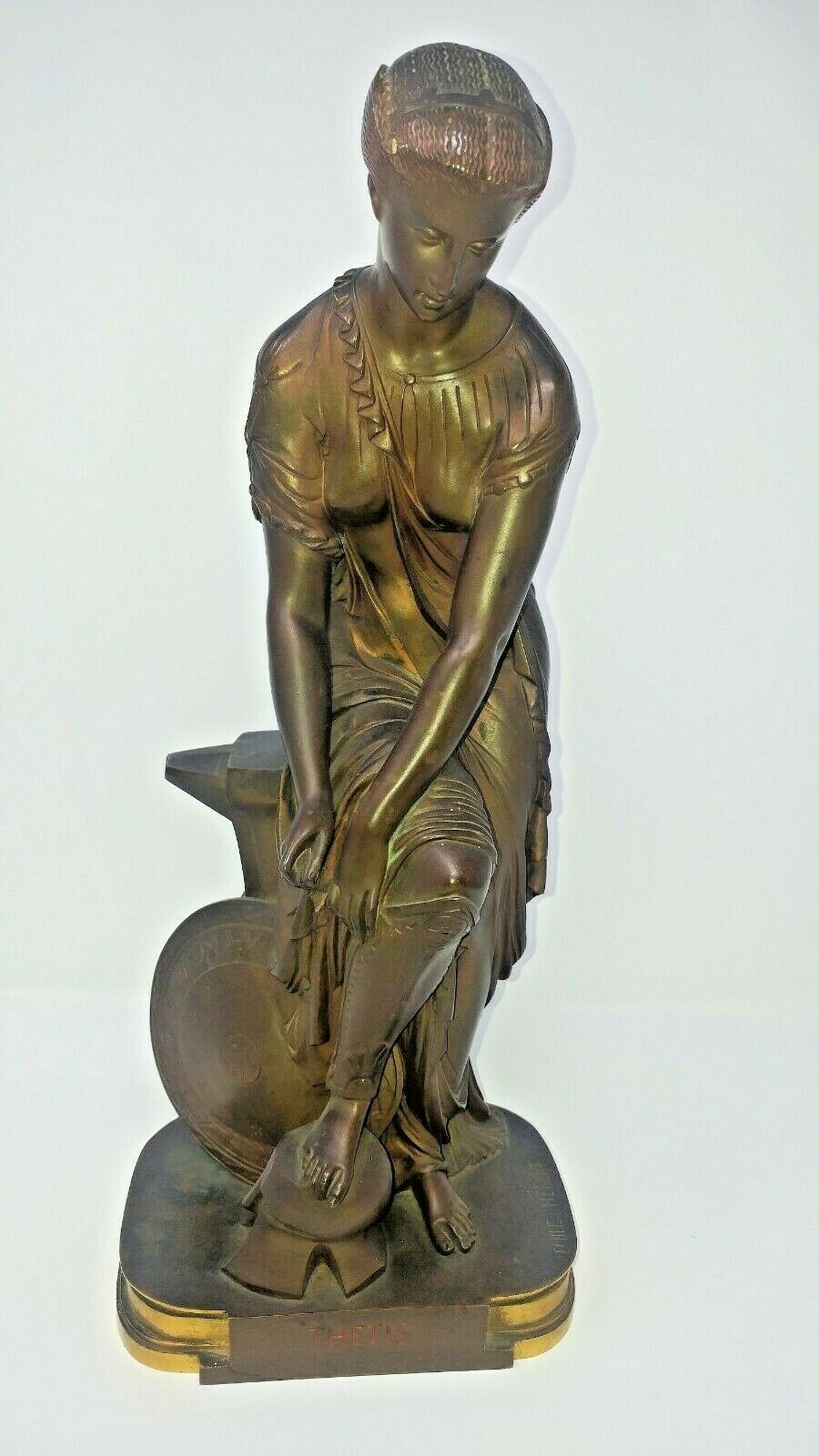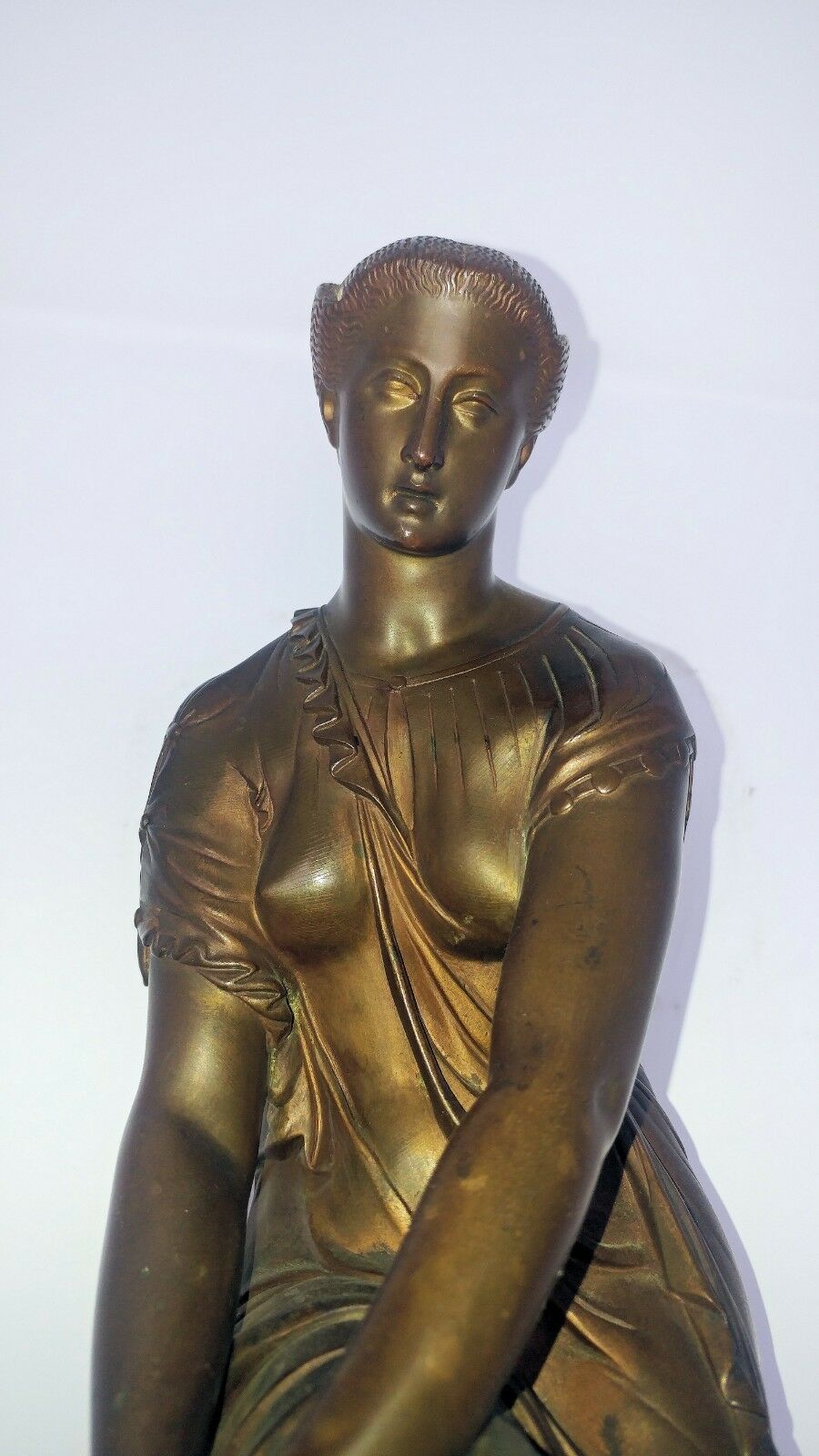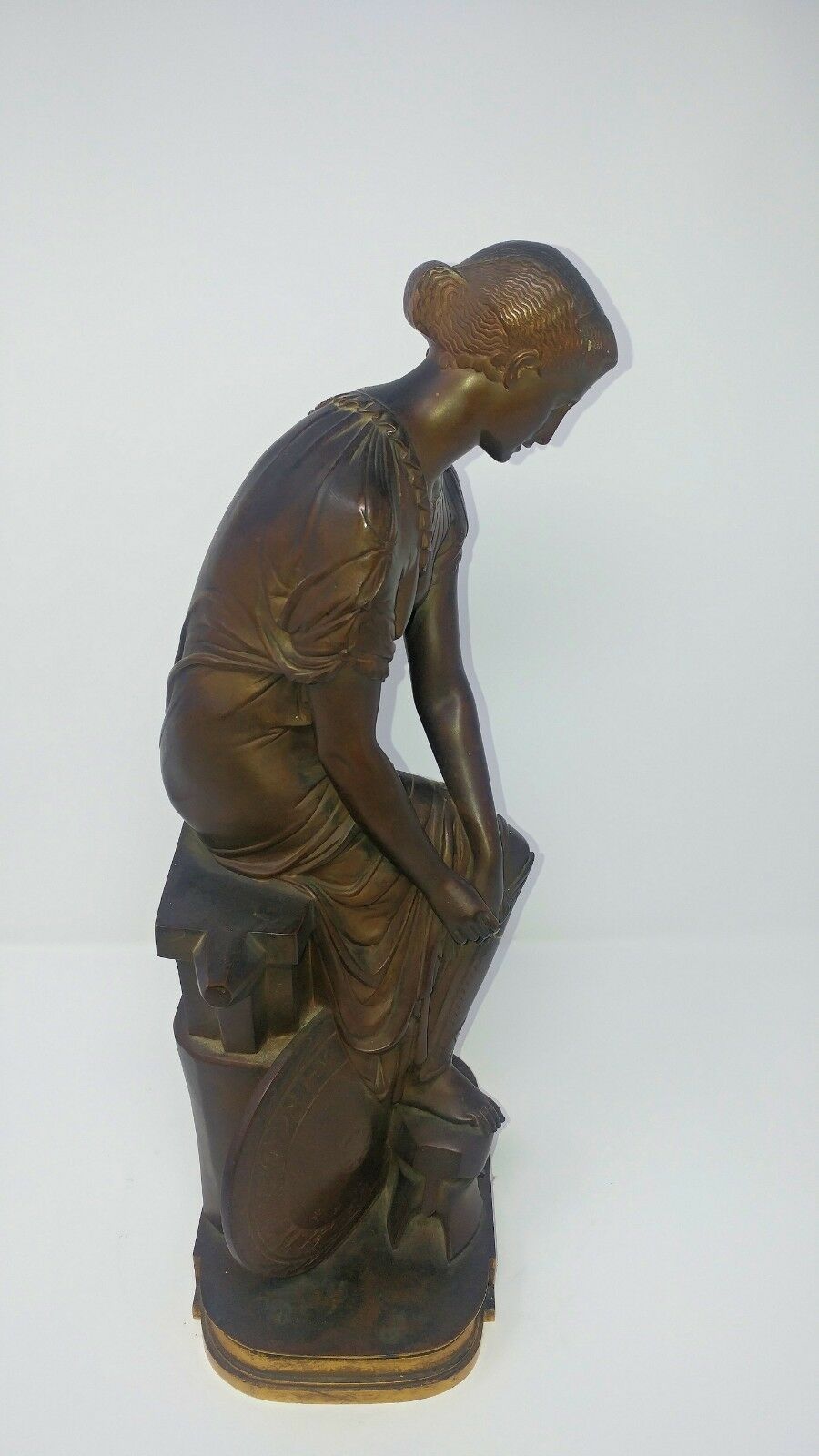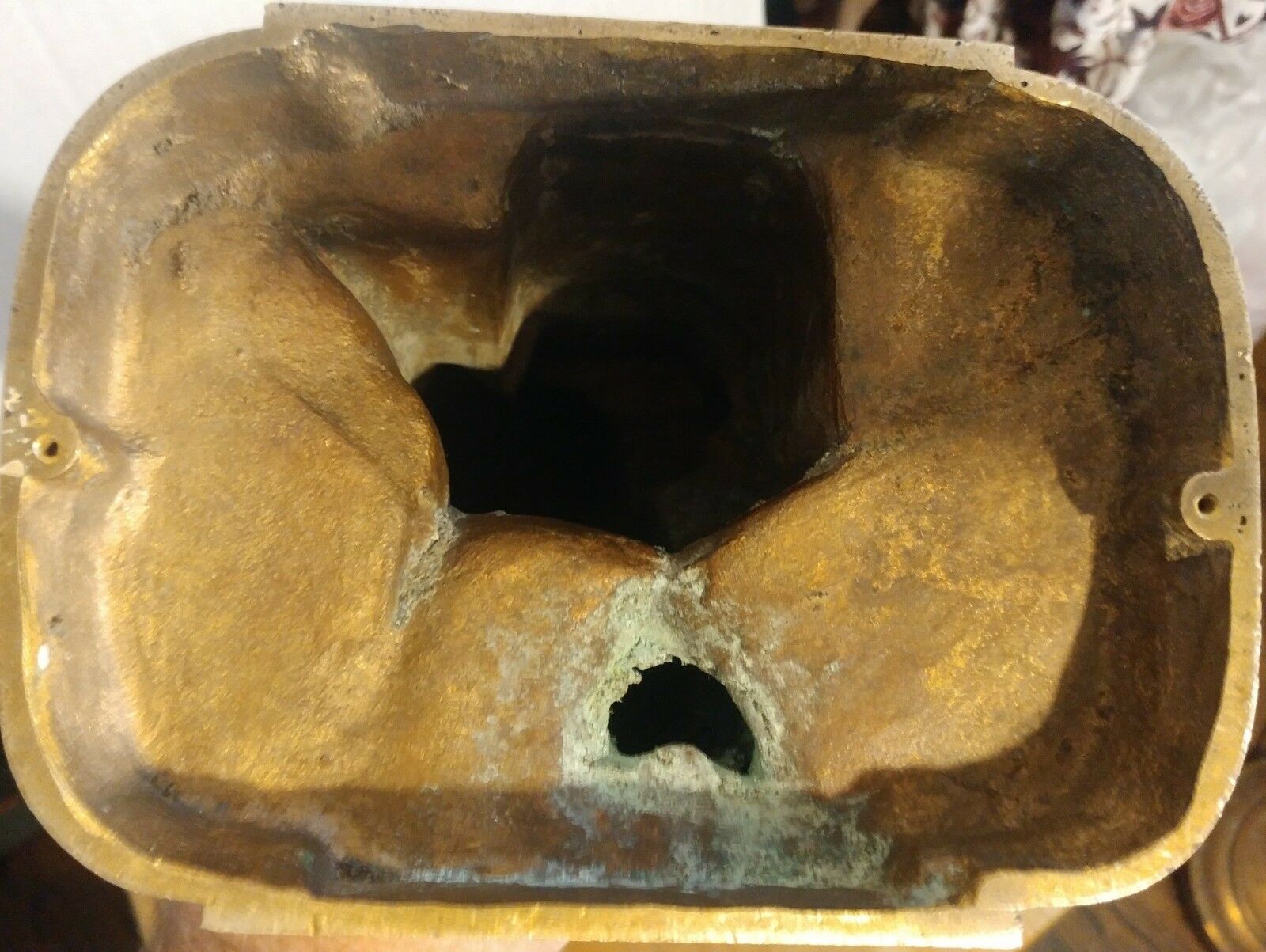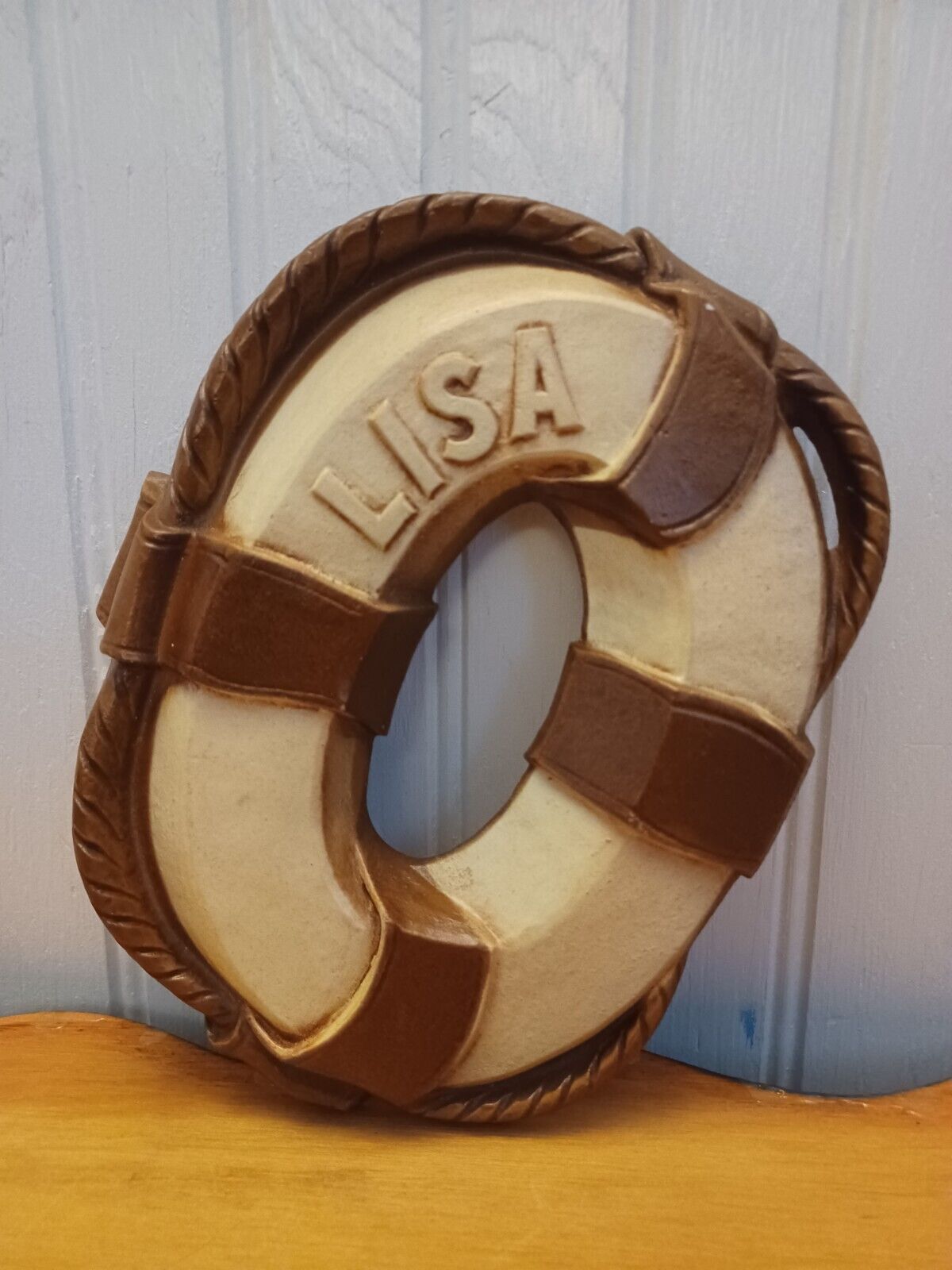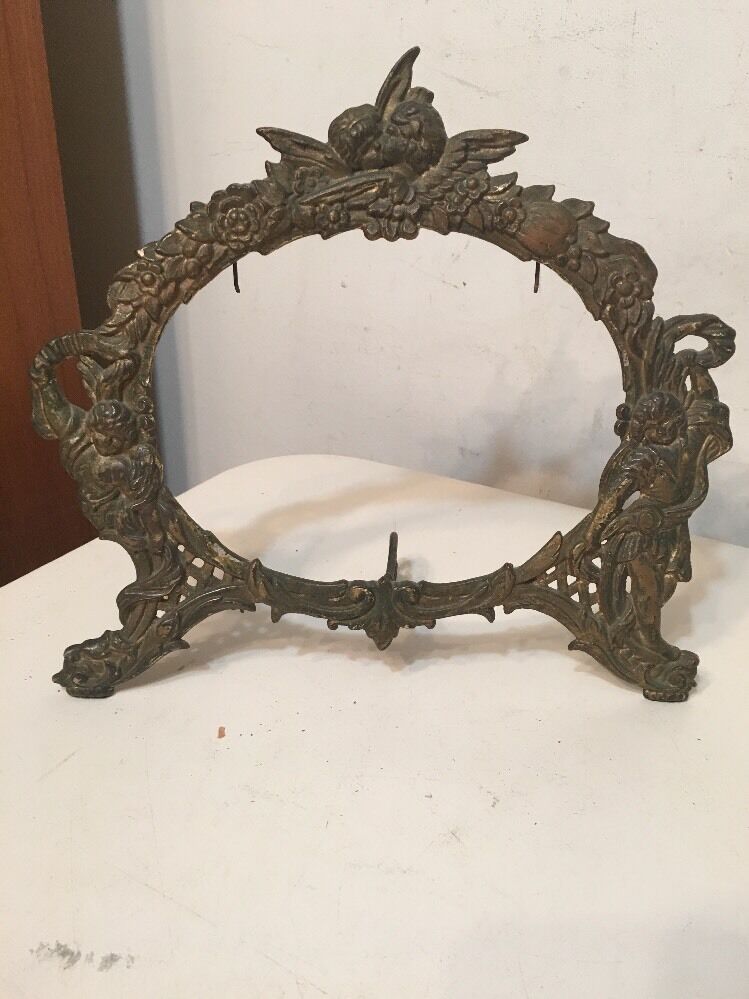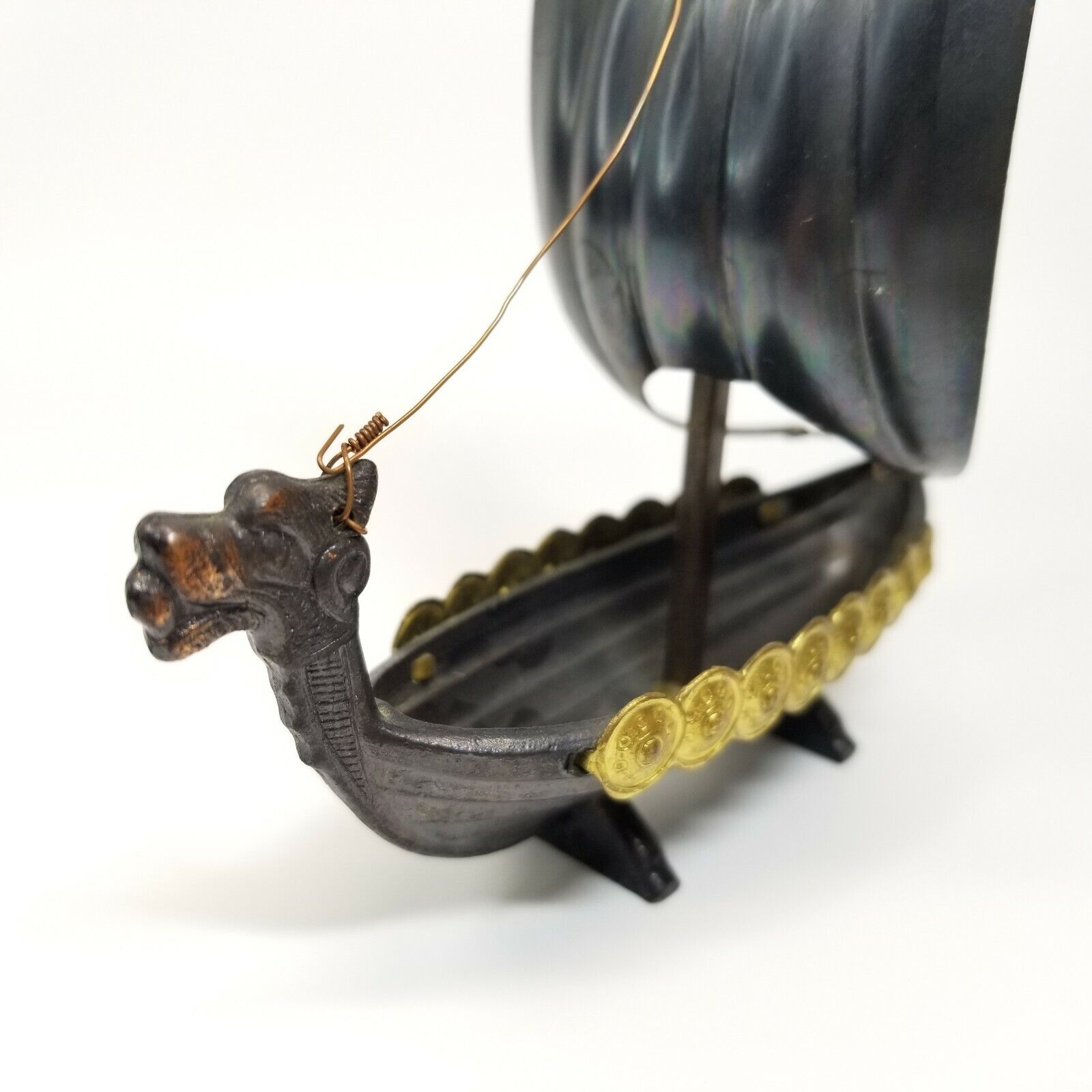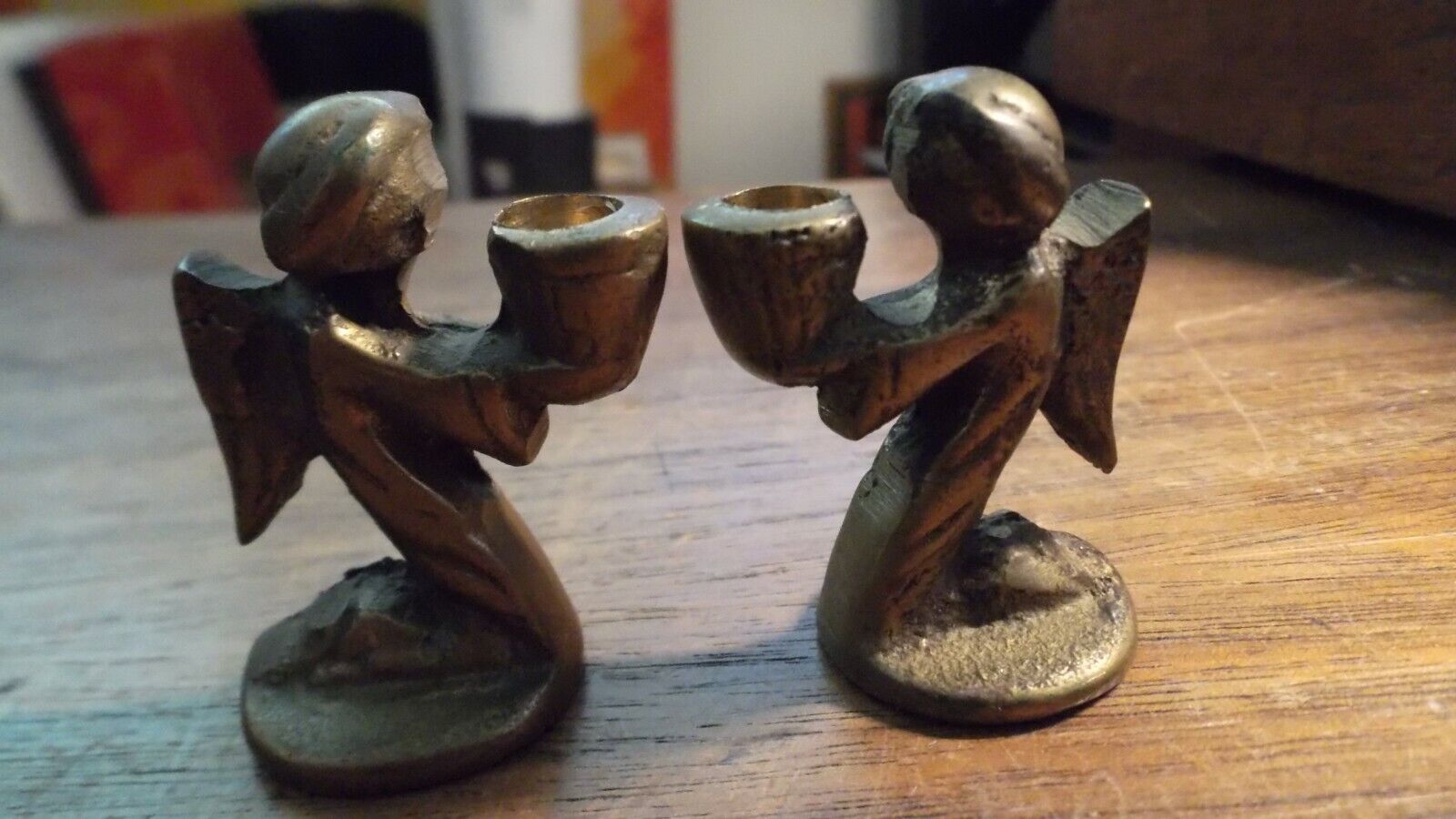-40%
THETIS. Bronze Sculpture. EMILE PIERRE EUGENE HEBERT. Stamped 1867 Medaille D'or
$ 1056
- Description
- Size Guide
Description
Here is a nice estate find bronze sculpture. Thetis putting on Achilles armor. Stamped with the GS 1867 Medaille D'or foundry markings. See the Antiques Road show appraisal of a like item that surprised a young girl that her "door stop" was actually a very valuable item. I have seen a few others but they did not have the foundry markings like this one that verifies it originality. 15" tall. Base is 6" 1/4 wide1867 Pierre-Eugène-Emile Hébert Bronze | Vintage Kansas City | Preview - YouTube
Video will open in a new window
Using the eBay App? Paste link into a browser window:
[isdntekvideo]
Thetis played a key part in the events of the Trojan War. Beyond the fact that the Judgement of Paris, which essentially kicked off the war, occurred at her wedding, Thetis influenced the actions of the Olympians and her son, Achilles. Following the death of Patroclus, who wore Achilles' armor in the fighting, Thetis comes to Achilles to console him in his grief. She vows to return to him with armor forged by Hephaestus, the blacksmith of the gods, and tells him not to arm himself for battle until he sees her coming back. While Thetis is gone, Achilles is visited by Iris, the messenger of the gods, sent by Hera, who tells him to rejoin the fighting. He refuses, however, citing his mother's words and his promise to her to wait for her return. Thetis, meanwhile, speaks with Hephaestus and begs him to make Achilles armor, which he does. First, he makes for Achilles a splendid shield, and having finished it, makes a breastplate, a helmet, and greaves. When Thetis goes back to Achilles to deliver his new armor, she finds him still upset over Patroclus. Achilles fears that while he is off fighting the Trojans, Patroclus' body will decay and rot. Thetis, however, reassures him and places ambrosia and nectar in Patroclus' nose in order to protect his body against decay.Nine years after the beginning of the Trojan War, the Iliad starts with Agamemnon, the King of the Achaeans, and Achilles, son of Thetis, arguing over Briseis, a war prize of Achilles. After initially refusing, Achilles relents and gives Briseis to Agamemnon. However, Achilles feels disrespect for having to give up Briseis and prays to Thetis, his mother, for restitution of his lost honor. She urges Achilles to wait until she speaks with Zeus to rejoin the fighting, and Achilles listens. When she finally speaks to Zeus, Thetis convinces him to do as she bids, and he seals his agreement with her by bowing his head, the strongest oath that he can make. After Achilles uses his new armor to defeat Hector in battle, he keeps Hector's body to mutilate and humiliate. However, after nine days, the gods call Thetis to Olympus and tell her that she must go to Achilles and pass him a message, that the gods are angry that Hector's body has not been returned. She does as she is bid, and convinces Achilles to return the body for ransom, thus avoiding the wrath of the gods.
